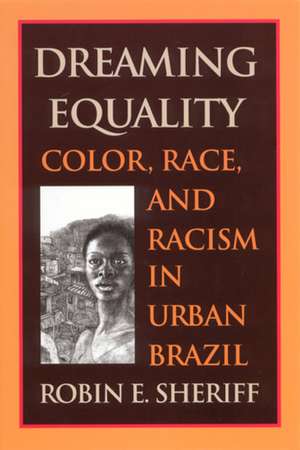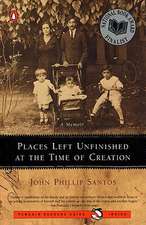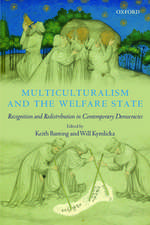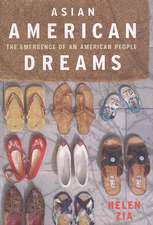Dreaming Equality: Color, Race, and Racism in Urban Brazil
Autor Robin E. Sheriffen Limba Engleză Paperback – noi 2001
In the 1933 publication The Masters and the Slaves, Brazilian scholar and novelist Gilberto Freyre challenged the racist ideas of his day by defending the “African contribution” to Brazil’s culture. In so doing, he proposed that Brazil was relatively free of most forms of racial prejudice and could best be understood as a “racial democracy.” Over time this view has grown into the popular myth that racism in Brazil is very mild or nonexistent.
This myth contrasts starkly with the realities of a pernicious racial inequality that permeates every aspect of Brazilian life. To study the grip of this myth on African Brazilians’ views of themselves and their nation, Robin E. Sheriff spent twenty months in a primarily black shantytown in Rio de Janeiro, studying the inhabitants’s views of race and racism. How, she asks, do poor African Brazilians experience and interpret racism in a country where its very existence tends to be publicly denied? How is racism talked about privately in the family and publicly in the community—or is it talked about at all?
Sheriff’s analysis is particularly important because most Brazilians live in urban settings, and her examination of their views of race and racism sheds light on common but underarticulated racial attitudes. This book is the first to demonstrate that urban African Brazilians do not subscribe to the racial democracy myth and recognize racism as a central factor shaping their lives.
This myth contrasts starkly with the realities of a pernicious racial inequality that permeates every aspect of Brazilian life. To study the grip of this myth on African Brazilians’ views of themselves and their nation, Robin E. Sheriff spent twenty months in a primarily black shantytown in Rio de Janeiro, studying the inhabitants’s views of race and racism. How, she asks, do poor African Brazilians experience and interpret racism in a country where its very existence tends to be publicly denied? How is racism talked about privately in the family and publicly in the community—or is it talked about at all?
Sheriff’s analysis is particularly important because most Brazilians live in urban settings, and her examination of their views of race and racism sheds light on common but underarticulated racial attitudes. This book is the first to demonstrate that urban African Brazilians do not subscribe to the racial democracy myth and recognize racism as a central factor shaping their lives.
Preț: 316.16 lei
Nou
Puncte Express: 474
Preț estimativ în valută:
60.51€ • 65.32$ • 50.74£
60.51€ • 65.32$ • 50.74£
Carte tipărită la comandă
Livrare economică 19 aprilie-03 mai
Preluare comenzi: 021 569.72.76
Specificații
ISBN-13: 9780813530000
ISBN-10: 0813530008
Pagini: 278
Dimensiuni: 152 x 229 x 20 mm
Greutate: 0.4 kg
Ediția:None
Editura: Rutgers University Press
Colecția Rutgers University Press
ISBN-10: 0813530008
Pagini: 278
Dimensiuni: 152 x 229 x 20 mm
Greutate: 0.4 kg
Ediția:None
Editura: Rutgers University Press
Colecția Rutgers University Press
Notă biografică
Robin E. Sheriff is an assistant professor of anthropology at Florida International University.
Cuprins
Acknowledgments
Introduction
Chapter 1 The Hill
Chapter 2 Talk: Discourses on Color and Race
Chapter 3 Silence: Racism and Cultural Censorship
Chapter 4 Narratives: Racism on the Asphalt
Chapter 5 Narratives: Racism at Home
Chapter 6 Whiteness: Middle-Class Discourses
Chapter 7 Blackness: Militant Discourses
Chapter 8 Conclusion: Dreaming
Epilogue
Notes
References
Index
Introduction
Chapter 1 The Hill
Chapter 2 Talk: Discourses on Color and Race
Chapter 3 Silence: Racism and Cultural Censorship
Chapter 4 Narratives: Racism on the Asphalt
Chapter 5 Narratives: Racism at Home
Chapter 6 Whiteness: Middle-Class Discourses
Chapter 7 Blackness: Militant Discourses
Chapter 8 Conclusion: Dreaming
Epilogue
Notes
References
Index
Recenzii
An interesting case study. . . . This book is an excellent resource for researchers and students interested in race relations in countries with large numbers of African descendants, predominant miscegenation, and a covert racism (disguised as racial democracy), as is the case in Brazil.
A compassionate, intelligent, and beautifully written study of racism in one of the worldÆs poorest slums. Through the intimate detail, the word, conversation, pause, and silence, Robin Sheriff exposes the contradictory reality that lies behind the myth and dream of racial democracy in Brazil. Dreaming Equality should be read by everyone interested in racismùand equality.
In this ethnography, Sheriff challenges the decades-old claim that Brazil is relatively free of racial prejudice and functions as a democracia racial (racial democracy) by examining how discourse there constructs cultural understanding. . . . Skillfully dismembering the concept of democracia racial and all its paradoxes, Sheriff offers an innovative method for analyzing racism in any country or locale, not just Brazil.
A compassionate, intelligent, and beautifully written study of racism in one of the worldÆs poorest slums. Through the intimate detail, the word, conversation, pause, and silence, Robin Sheriff exposes the contradictory reality that lies behind the myth and dream of racial democracy in Brazil. Dreaming Equality should be read by everyone interested in racismùand equality.
In this ethnography, Sheriff challenges the decades-old claim that Brazil is relatively free of racial prejudice and functions as a democracia racial (racial democracy) by examining how discourse there constructs cultural understanding. . . . Skillfully dismembering the concept of democracia racial and all its paradoxes, Sheriff offers an innovative method for analyzing racism in any country or locale, not just Brazil.
Descriere
Robin E. Sheriff spent twenty months in a primarily black shantytown in Rio de Janeiro, studying the inhabitants’s views of race and racism. How, she asks, do poor African Brazilians experience and interpret racism in a country where its very existence tends to be publicly denied? How is racism talked about privately in the family and publicly in the community—or is it talked about at all?

















